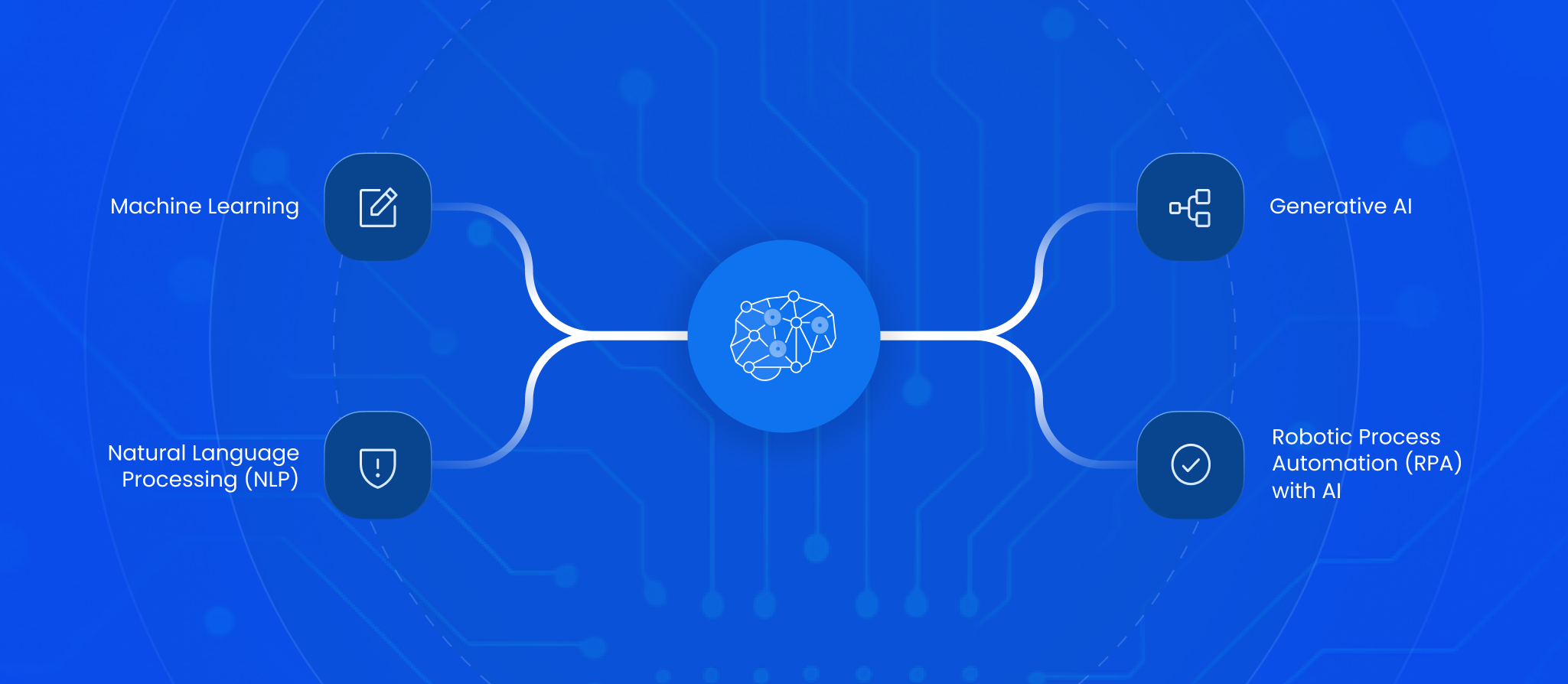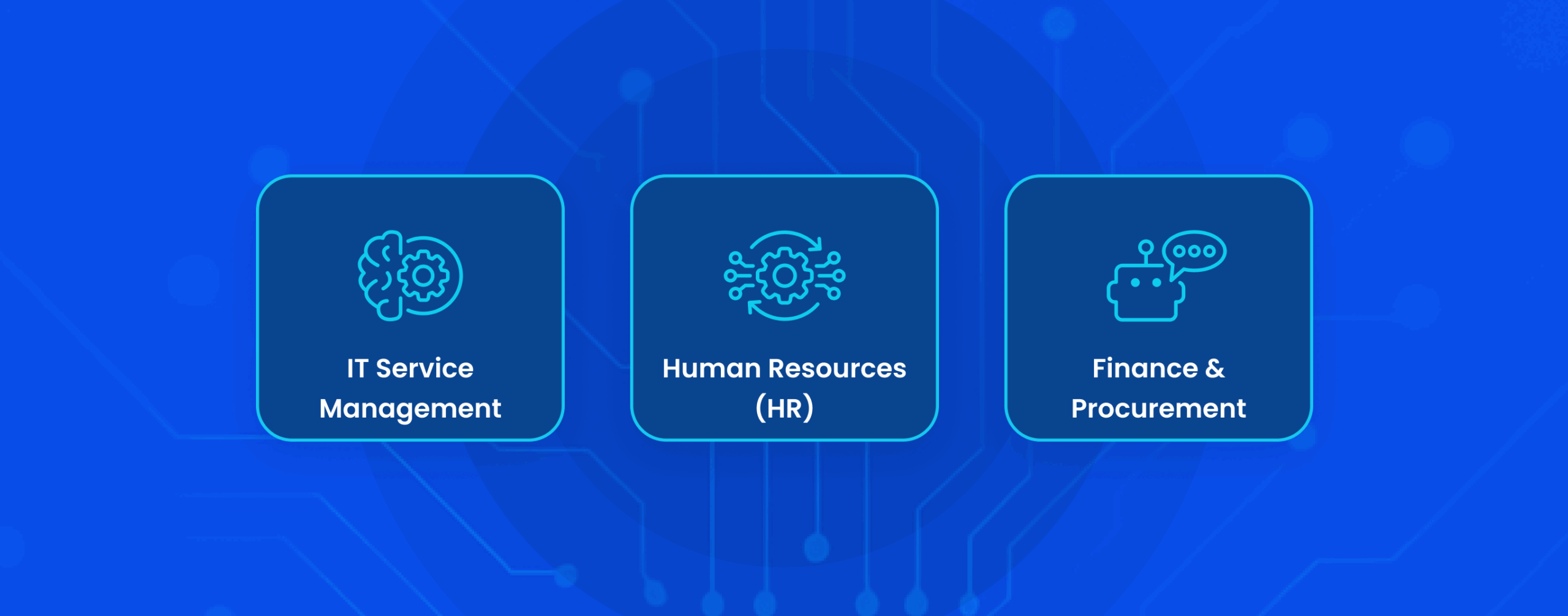Introduction
The landscape of enterprise operations is shifting dramatically, and at its heart lies the transformative power of AI tools for business automation. For technology leaders overseeing critical systems in large US companies, the conversation has moved far beyond simple chatbots. We’re now entering an era where artificial intelligence isn’t just about efficiency; it’s about creating an intelligent, self-optimizing ecosystem that redefines how work gets done across IT, HR, and Finance. This is about building a proactive, predictive, and truly invaluable support structure for your entire organization.
What are AI Tools for Business Automation?
At its core, AI tools for business automation leverage artificial intelligence to execute tasks, processes, and decisions that traditionally required human intervention. However, the definition for 2025 is far more sophisticated. We’re no longer talking about basic rule-based scripts. Instead, these are advanced systems that employ:
- Machine Learning: To learn from vast datasets, identify patterns, and make increasingly accurate predictions or decisions without explicit programming.
- Natural Language Processing (NLP): To understand, interpret, and generate human language, allowing for seamless interactions with employees through conversational interfaces.
- Generative AI: To create new content, synthesize information, and even draft solutions or code based on complex prompts and historical data.
- Robotic Process Automation (RPA) with AI: To automate repetitive, high-volume tasks by mimicking human interactions with digital systems, now enhanced with intelligence for more complex scenarios.
Fundamentally, these tools are designed to augment human capabilities, manage complexity, and ensure critical business functions run smoothly and intelligently.

How AI Tools for Business Automation Work
Imagine an orchestra where every instrument plays in perfect harmony, often anticipating the next note. That’s a good analogy for how modern AI tools for business automation function within an enterprise. They don’t just react; they predict, learn, and adapt.
-
Ingesting Data: First, AI systems continuously ingest enormous amounts of operational data. This includes everything from past support tickets, employee queries, system logs, network traffic, application performance metrics, and even sentiment analysis from interactions.
-
Learning and Pattern Recognition: Next, sophisticated machine learning algorithms process this data. They identify correlations, spot anomalies, and learn from every interaction and resolution. This enables them to understand recurring issues, predict potential failures, and determine the most effective solutions.
-
Automated Decision-Making and Action: Then, based on their learning, these AI agents can make informed decisions. This might involve automatically routing a complex IT issue to the right specialist, resolving a common HR request instantly, or even proactively patching a vulnerable system before an outage occurs.
-
Continuous Improvement: Crucially, these systems are designed for continuous learning. Every new piece of data, every human override, and every successful or unsuccessful resolution further refines the AI’s models, making it smarter and more effective over time. This iterative process ensures the automation stays relevant and optimized.
Key Benefits of Using AI Tools for Business Automation
For technology leaders in 2025, the benefits of deploying advanced AI tools for business automation extend far beyond simple cost savings. They fundamentally reshape the employee experience, operational efficiency, and strategic decision-making.
- Enhanced Employee Experience: Employees get immediate, accurate answers to their questions, whether it’s about setting up a new laptop, understanding benefits, or expense reporting. This reduces frustration, frees up their time for core responsibilities, and fosters a more productive work environment.
- Significant Cost Reduction: By automating routine queries and even complex issue resolution, the need for human intervention decreases. This translates to lower operational costs in IT, HR, and Finance departments, allowing budget reallocation to strategic initiatives.
- Increased Operational Efficiency: AI agents work 24/7, instantly processing requests, escalating issues, and gathering necessary information. This drastically reduces resolution times, minimizes downtime, and ensures a faster pace of business operations.
- Improved Accuracy and Consistency: Human error is a reality. AI systems, however, deliver consistent, data-driven responses and actions every time, ensuring compliance and reducing rework across all automated processes.
- Valuable Data Insights: The interactions managed by AI agents generate a treasure trove of data. This allows you to gain unprecedented insights into common employee pain points, system vulnerabilities, and areas for process improvement across your enterprise.
Common Use Cases in Enterprises
The practical applications of AI tools for business automation are vast and growing, especially in critical enterprise functions.
- IT Service Management:
- Automated Password Resets: Instantly handle one of the most frequent IT requests without human intervention.
- Software Installation & Troubleshooting: Guide employees through common software installs or diagnose basic issues directly.
- Ticket Triaging and Escalation: Intelligently route complex tickets to the correct specialized team, often gathering all necessary diagnostic information beforehand.
- Proactive Issue Resolution: Identify and resolve system anomalies before they impact users, reducing the volume of incoming tickets.
- Human Resources (HR):
- Benefits Inquiries: Provide immediate answers to questions about health plans, 401k, and vacation policies.
- Onboarding Support: Guide new hires through paperwork, system access, and company policies.
- Policy Clarification: Instantly explain company policies on everything from remote work to expense reporting.
- Finance & Procurement:
- Expense Report Processing: Help employees submit and track expense reports, clarifying policy details.
- Invoice Status Inquiries: Provide real-time updates on invoice payments and vendor queries.
- Procurement Assistance: Guide employees through purchasing processes and approved vendor lists.

Challenges in Implementing AI Tools for Business Automation
While the benefits are clear, implementing AI tools for business automation effectively requires navigating a few key challenges.
- Data Quality and Availability: AI thrives on good data. Poor, incomplete, or siloed data can significantly hamper an AI’s ability to learn and perform accurately. Ensuring robust data governance is crucial.
- Integration Complexity: Large enterprises often have a sprawling ecosystem of legacy systems and new applications. Integrating AI tools seamlessly with existing ticketing systems, HRIS, ERPs, and other platforms can be a significant technical undertaking.
- Change Management and Adoption: Introducing AI-powered automation changes how employees interact with support and how human agents work. Managing this cultural shift and ensuring widespread adoption requires clear communication, training, and demonstrating immediate value.
- Security and Compliance Concerns: As AI agents handle sensitive employee and company data, ensuring robust data privacy, security protocols, and compliance with regulations like HIPAA or GDPR is paramount.
- Measuring ROI: Clearly quantifying the return on investment for AI can be complex. Beyond direct cost savings, measuring improved employee productivity, faster resolution times, and enhanced experience requires sophisticated metrics.
How Leena AI Enables Business Automation with AI Tools
At Leena AI, we’re pioneering the next generation of AI tools for business automation with our Agentic AI platform. We understand the specific needs of large enterprises and have engineered our solution to be more than just a chatbot; it’s a true digital agent designed to intelligently resolve complex IT, HR, and Finance queries.
Our approach centers on Agentic AI in IT, which goes beyond simple automation. Rather than merely providing information, Leena AI’s agents can:
- Proactively Resolve Issues: Our AI can detect potential system issues from logs and user behavior, then initiate automated remediation processes before a ticket is even created. For instance, if an application starts showing slow performance for a cluster of users, the AI can trigger diagnostic checks and restart services automatically.
- Execute Multi-Step Solutions: For issues like “my VPN isn’t working,” our agents don’t just offer troubleshooting steps. They can actually execute commands, verify configurations, and even create temporary network access if needed, guiding the employee through a complete resolution process.
- Intelligent Knowledge Engineering: Leena AI continuously learns from every interaction, every resolved ticket, and every system update. This ensures your knowledge base is always current and relevant, automatically updating itself based on real-world resolutions.
- Seamless Integration: We understand your complex tech stack. Leena AI integrates effortlessly with leading enterprise systems like ServiceNow, Workday, Salesforce, and SAP, ensuring a unified and consistent experience for your employees.
- Personalized Support: Our AI agents understand the context of each employee, their role, and their past interactions. This allows for highly personalized and relevant assistance, making every interaction feel tailored.
By leveraging Leena AI, organizations move from reactive ticket management to a proactive, intelligent support system. We empower your human teams to focus on strategic, high-value projects, while our AI agents handle the bulk of operational queries and even resolve many complex issues autonomously, truly delivering on the promise of AI tools for business automation.
Future of AI Tools for Business Automation
Looking ahead to 2025 and beyond, the future of AI tools for business automation is incredibly exciting for technology leaders. We anticipate several transformative trends:
-
Truly Autonomous Operations: We will see a significant leap towards fully autonomous IT operations where AI anticipates, diagnoses, and resolves a vast majority of infrastructure and application issues without human intervention.
-
Hyper-Personalized & Proactive Employee Journeys: AI will move beyond just answering questions to actively guiding employees through their workday. This includes proactive suggestions, personalized learning paths, and anticipatory support for complex tasks.
-
Advanced Generative AI for Problem Solving: Generative AI will evolve to become a reasoning engine that can not only understand problems but also propose novel solutions, draft complex code, and even simulate outcomes for critical business decisions.
-
Ethical AI and Governance Frameworks: As AI becomes more pervasive, there will be an increased focus on robust ethical AI frameworks, explainable AI (XAI), and comprehensive governance to ensure fairness, transparency, and accountability.
-
Seamless Human-AI Collaboration: The future isn’t about replacing humans but augmenting them. AI tools will become indispensable co-pilots, enhancing the capabilities of every employee, from the helpdesk agent to the executive.
The journey towards intelligent automation is continuous. Embracing these advanced AI tools for business automation is not just an opportunity to streamline operations; it’s a strategic imperative to future-proof your enterprise and cultivate a highly efficient, engaged, and resilient workforce.
Frequently Asked Questions about AI Tools for Business Automation
What exactly are AI tools for business automation?
AI tools for business automation use artificial intelligence, such as machine learning and natural language processing, to automate tasks and processes across business functions like IT, HR, and Finance, making operations more efficient and intelligent.
How do AI tools for business automation benefit large enterprises specifically?
For large enterprises, AI tools for business automation significantly reduce operational costs, enhance employee experience with instant support, improve accuracy and consistency in service delivery, and provide critical data insights for strategic decision-making.
What are common challenges when implementing AI tools for business automation?
Key challenges include ensuring high-quality data, integrating AI with existing complex enterprise systems, managing organizational change, ensuring robust data security and compliance, and accurately measuring the return on investment from AI tools for business automation.
Can AI tools for business automation truly resolve complex IT issues?
Yes, advanced AI tools for business automation, especially Agentic AI, are designed to go beyond basic queries. They can proactively detect issues, execute multi-step diagnostic and resolution processes, and even learn from new information to autonomously solve complex IT problems.
How does Leena AI enhance business automation with its AI tools?
Leena AI provides Agentic AI that acts as an intelligent digital agent, not just a chatbot. It proactively resolves IT, HR, and Finance tickets, executes multi-step solutions, continuously learns from interactions, and seamlessly integrates with existing enterprise systems to deliver true AI tools for business automation.
What does the future hold for AI tools for business automation?
The future points to even more autonomous operations, hyper-personalized and proactive employee support, advanced generative AI for complex problem-solving, stronger ethical AI frameworks, and seamless human-AI collaboration, driven by the continuous evolution of AI tools for business automation.
It’s a long-term strategic imperative. As technology advances and workforce expectations evolve, leveraging AI tools for business automation becomes essential for maintaining competitiveness, optimizing resources, and fostering a productive, modern enterprise environment.













